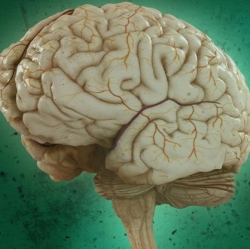
The discovery of a link between Alzheimer’s disease and changes in several genes associated with inflammation opens a new frontier for investigation into the cause of the disease. Two independent studies, published today in Nature Neuroscience, support an emerging theory that inflammation may play a key role in Alzheimer’s disease.
Researchers in the first study collected post-mortem brain tissue from 708 individuals who were enrolled in studies of ageing. The second study took post-mortem brain samples from four individuals. Both groups examined the tissue for well-known pathological signs of Alzheimer’s disease, known as neurofibrillary tangles, then analysed the DNA in the brains for ‘epigenetic’ changes.
Epigenetic changes switch particular genes on or off . One of the ways this can occur is by altering the biochemistry of the DNA, a process called DNA methylation. "The epigenome is modifiable by human experience and exposure. We’re interested in seeing whether different life experiences or other exposures actually affect Alzheimer’s disease through the epigenome," says co-author Dr David M. Bennett, professor of neurology and head of the Rush Alzheimer’s Disease Center, Chicago.
"There’s a lot of interest in both the genomic and environmental risk factors for Alzheimer’s disease, and by environmental, we’re not talking about the high wires or pollution, we’re really talking about the experiential, like cognitive activities, or psychological like depression, or medical like diabetes."
